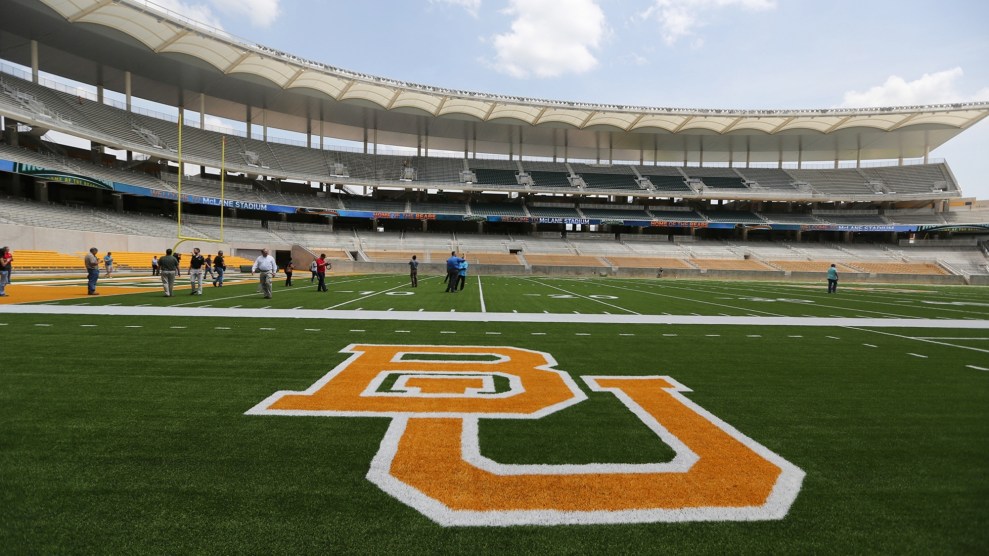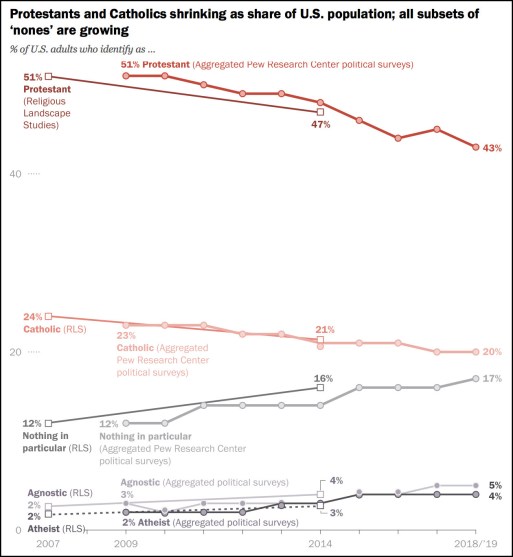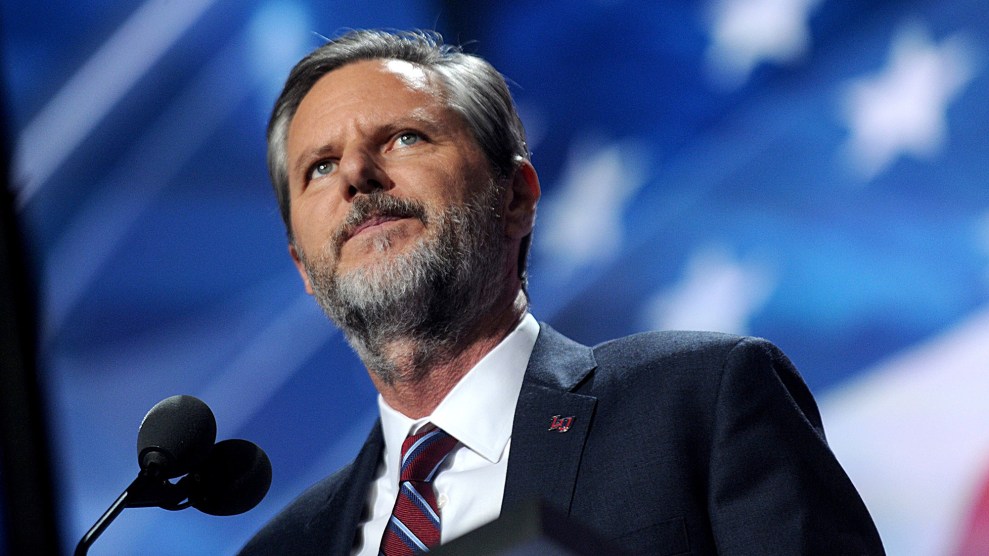
Rod Aydelotte/Waco Tribune Herald/AP
Biden’s Department of Education has granted Baylor University a religious exemption to Title IX provisions that hold schools accountable for sexual harassment against LGBTQ students, despite the university’s troubling history of alleged Title IX violations. The letters requesting and granting the exemption were dated May 1 and July 25, respectively, but didn’t receive widespread attention until after a tweet thread from the Religious Exemption Accountability Project about the letters went viral last week. The exemption protects Baylor from complaints that would cause other schools to lose their federal funding.
Baylor’s letter, signed by President Linda Livingstone, noted that the university was requesting an exemption in response to three complaints made to the DOE’s Office for Civil Rights: one about the decision to deny a charter for a queer student group, another about the school’s unsatisfactory response to students’ claims they were harassed based on their gender identity and sexual orientation, and a third based on allegations that the university pressured media outlets not to cover campus LGBTQ activism during the fall of 2021. In its exemption request, the school claimed that acting in accordance with Title IX in these instances would violate its religious tenets. Baylor, a Baptist institution, argued that its faith “affirms the biblical understanding of sexuality as a gift from God” and demands “purity in singleness and fidelity in marriage between a man and a woman as the biblical norm.”
The Department of Education granted the exemption but noted that each Title IX complaint would be reviewed to determine whether it fell into an exempted category.
Title IX exemptions are common in religious higher education, though two Title IX experts contacted for this story said they’d never heard of an exemption being granted specifically for sexual harassment. A 2015 report from the Human Rights Campaign found a majority of religious exemptions were based on either gender identity or sexual orientation, but most involved opting out of regulations around housing, athletics, and access to facilities. In 2021, Baylor was one of several schools named in a lawsuit by the Religious Exemption Accountability Project, which challenged the Department of Education’s policy of granting religious exemptions. That lawsuit was dismissed in January 2023.
Philip Gordon, an attorney who specializes in Title IX cases, pointed out that Baylor’s letter displayed seemingly contradictory sentiments toward its LGBTQ students. On the one hand, the university emphasizes being accepting of all students who follow its religious tenets, writing that it is “committed to showing love and respect to each member of its campus community.” But at the same time, it’s requesting to be shielded from consequences if queer students feel unsafe. Gordon argued that Baylor’s situation raises important questions about the limits of Title IX exemptions. “Should our federal dollars be going to a place that cannot say it protects all its students?” he asked.
While Baylor’s request for an exemption focused specifically on discrimination against LGBTQ students, the university’s request for a religious exemption is especially concerning given its history of sexual assault and harassment allegations, mostly against the football team. A 2017 lawsuit against the school alleged that members of the football team committed 52 acts of rape between 2011 and 2014. The lawsuit was settled later that year. In 2018, the school released a statement outlining its “continued commitment to effectively addressing issues of sexual assault and interpersonal violence, including Title IX.” As of July 31, the DOE still has a Title IX investigation open on Baylor.
Shiwali Patel, director of justice for student survivors at the National Women’s Law Center, said she sees the lawsuit as part of a concerning change in Title IX rules. The Trump administration changed Title IX regulations to make it clear that schools did not have to file for exemptions in advance of complaints. Instead, they could file once complaints were raised, which, she argues, gives universities less incentive to be transparent. “Students and their families should be aware of whether or not the institution they attend or are planning to attend would be allowed to discriminate against them,” she said.
Correction, August 15: An earlier version of this story incorrectly implied that, prior to the Trump administration, schools could not submit an exemption request after a complaint was made.












